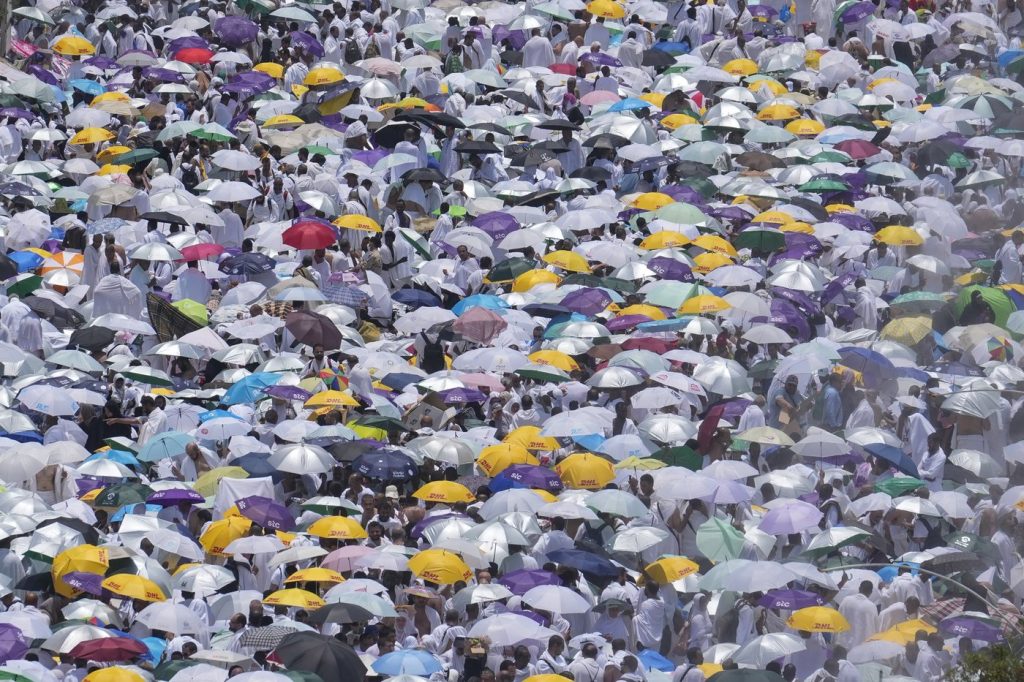MECCA, Saudi Arabia (AP) — In a significant enforcement of regulations, Saudi Arabia has stopped over 269,000 unauthorized individuals from entering Mecca for the annual Hajj pilgrimage, as reported by officials on Sunday. This action underscores the government's ongoing efforts to crack down on illegal entries into the holy city, where the Hajj is conducted. Officials have attributed overcrowding during the pilgrimage partly to these unauthorized attendees, linking them to last year's fatalities from extreme heat.
Currently, there are approximately 1.4 million Muslims officially present in Mecca, with an anticipated influx in the days ahead. The Saudi government has implemented strict measures against those attempting to perform the Hajj without the required permits, including fines up to $5,000 and potential deportation. This regulatory framework applies not only to international pilgrims but also to Saudi citizens and residents.
During a press conference in Mecca, officials disclosed that they had stopped a total of 269,678 individuals without valid permits from entering the city. According to existing regulations, only those holding permits can undertake the pilgrimage, regardless of whether they reside in Mecca year-round. Additionally, punitive measures have been taken against over 23,000 Saudi residents for breaching Hajj regulations, and 400 Hajj company licenses have been revoked.
Lt. Gen. Mohammed Al-Omari emphasized the strict surveillance of pilgrims, stating, "The pilgrim is in our sight, and anyone who disobeys is in our hands." This firm stance reflects the Saudi authorities' commitment to managing the Hajj experience and ensuring the safety of those undertaking this pivotal religious duty.
The Hajj, which is a mandatory pilgrimage for every Muslim capable of performing it financially and physically, is composed of a series of intricate religious rituals conducted over several days. However, recent years have seen concerns arise regarding the health and safety of pilgrims, specifically due to extreme temperatures that necessitate outdoor rituals during peak daylight hours.
Historically, the Hajj has been associated with occasional tragic incidents, including deaths and severe overcrowding, with instances of stampedes reported during peak attendance times. As such, the government's enforcement of strict permit regulations serves as both a protective measure and an effort to maintain order during the pilgrimage.
In a notable development, Saudi Arabia's Civil Defense announced the deployment of drones for the first time during the Hajj. These drones will serve dual purposes of surveillance and monitoring the flow of pilgrims, as well as extinguishing potential fires, further enhancing safety measures in the city.
This year's pilgrimage, scheduled to run from June 15 to June 20, 2024, highlights the continual adjustments made by the Saudi government to adapt to the challenges posed by mass gatherings in the holy city of Mecca, ensuring that the sanctity and safety of the experience remain paramount.











